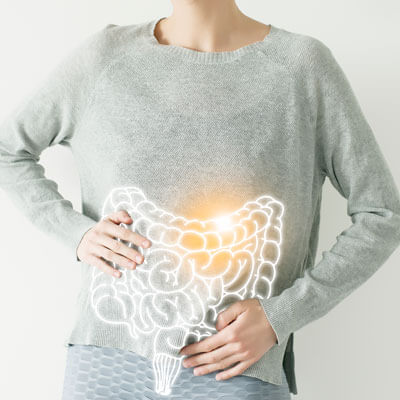 Inflammation is a bit of a buzzword these days. Lots of products and diets are on the market, promising to decrease inflammation and increase health. It’s somewhat daunting for the average health-conscious person. With this article, we hope to bring you some clarity and good starting points for engaging with this subject.
Inflammation is a bit of a buzzword these days. Lots of products and diets are on the market, promising to decrease inflammation and increase health. It’s somewhat daunting for the average health-conscious person. With this article, we hope to bring you some clarity and good starting points for engaging with this subject.
Inflammation is a process your body performs to heal sickness and injury. This is healthy and natural. Sustained inflammation, however, can be a big problem. Many of our common chronic illnesses are inflammatory at their root. A lot of foods we eat can increase inflammation, but a lot of foods we eat can decrease it, too. Rebalancing your diet, replacing those which cause inflammation with those which relieve it, can help you feel a whole lot better, across the board.
Before we start thinking about replacing things, a great first place to start is with foods that offer only empty calories. Soda, deep-fried snack foods, candy and other sweets – basically anything that is commonly thought of as “junk food” – these things are all highly inflammatory. If you can do away with foods like this, you’re already reducing the inflammatory load on your body by a notable amount, and the effects of further changes will be easier to monitor. Alcohol and tobacco are also inflammatory, so keep that in mind, too. As for regular, non-junk foods, a general rule is that the more processed they are, the more inflammatory. Processed meats, refined flours, fried foods, processed oils, and margarine are all inflammatory.
Refined Sugar
Refined sugar is regularly included in processed foods, even those you might not think of as sweet, and this can add to the inflammatory load. The less processed food you can eat, the better. Wherever possible, substitute processed foods with whole, fresh, and organic foods. In today’s busy world, that’s easier said than done, but it’s well worth making any change that you are able to. After you’ve cut out overtly harmful foods and replaced inflammatory foodstuffs with noninflammatory ones, there are further steps you can take to reduce unhealthy inflammation.
Turmeric is currently a very popular anti-inflammatory substance. Another option, previously covered on this blog, is enzyme therapy, taking proteolytic enzymes 2-4 hours after eating. You can research these strategies further on your own, as they are beyond the scope of this post.
There are also a number of herbal supplements which are purported to reduce inflammation. There is a lot of information about herbal supplements online but be advised that, just like pharmaceuticals, herbal supplements can interact with drugs, and with each other, and may affect different people differently, so it is wise to consult with your physician before beginning a new product. A final note- overeating, no matter what you eat, cause your body distress and it responds to distress by producing inflammation. As with any practice, moderation is the key to sustainability in an anti-inflammatory diet.
